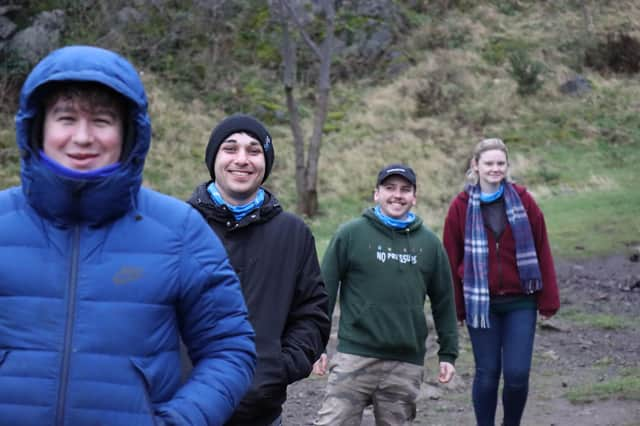Getting outdoors could alleviate secondary damage of Covid - Andy Hardie


It makes sense when something consumes our focus like a Covid-19 world. Back then, alongside a climate emergency, there were few things that could have drawn more attention in the media. But for some, this concern is in even sharper focus because of a Covid-19 world.
Right now, there is a desperate hope for a transition back to something familiar, a longing for the reversal and eventual removal of the restrictions. In the background there is a deep, reverberating disquiet. It is the sound of suffering minds, the sounds of loss, separation, loneliness, disconnection, anxiety and worry. And it is getting louder.
Advertisement
Hide AdAdvertisement
Hide AdUnder-resourced and over-stretched public-sector services came up against this growing disquiet “back then” – and were found wanting. People were reporting mental health difficulties in record numbers and things have only deteriorated since then. If we do not plan and execute a good enough response, we risk the tragic consequences of the so-called “secondary” damage Covid-19 leaves in its wake. From self-medication and addiction, from suicide, from the transmission of unacknowledged rage into violence on the streets, from the emotional poverty born from economic insufficiency and from joblessness that debilitates and depresses so many otherwise capable people.
Pointing out the absence of support for so many of those expressing difficulties and distress before the pandemic, requires us to consider and mobilise other options. One such option is the outdoors. A low-cost and accessible alternative to clinical settings that benefits mental health.
Local nature, alongside physical activity, whilst in conversation with a trusted person have offered solace to many of us this year. I don’t know anyone who would dispute the benefits of these component parts. Add in professional therapy and mental health support, and we have a model that is effective and (Covid-19) safe. So why is it not more widely applied?
At Venture Trust, our teams work in the outdoors and in communities. We work across professional disciplines to benefit people struggling with difficult life circumstances. Our programmes incorporate experiential learning, personal development, employability training and counselling/psychotherapy. We utilise urban outdoor spaces and Scotland’s wilderness to enable moments of reflection and self-discovery. We are now in a powerful position of having an opportunity to offer an outdoor therapy service, at a time when people need it the most.
Given that most mental health professionals are used to working inside a building, many transitioned to the more familiar medium of online/phone sessions with clients who were also willing and able to. But as we know, nature offers additional benefits. It is an approach that could be utilised by more and indeed has been embraced by some, ensuring the transition is ethical and appropriate by implementing good practice guidance.
It’s not ‘just’ stepping over the threshold of the consulting room and into a park. But with appropriate thought, local nature in people’s communities becomes a frame for their therapy. Utilising reflective opportunities in these environments, individuals engage with and value these often-overlooked spaces that they can continue using long into their future, with a new awareness of the opportunities just outside their door, for free.
Andy Hardie, Clinical Manager, Venture Trust
Comments
Want to join the conversation? Please or to comment on this article.